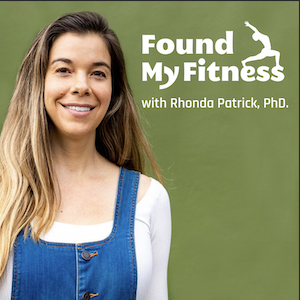Understanding cholesterol: going beyond total LDL + HDL | Ronald Krauss
Get the full length version of this episode as a podcast.
This episode will make a great companion for a long drive.
The BDNF Protocol Guide
An essential checklist for cognitive longevity — filled with specific exercise, heat stress, and omega-3 protocols for boosting BDNF. Enter your email, and we'll deliver it straight to your inbox.
The oversimplified view that high-density lipoprotein (HDL) cholesterol is good, and low-density lipoprotein (LDL) cholesterol is bad has led to misunderstandings of the relationship between cholesterol and cardiovascular disease risk. Research suggests that people with evidence of heart disease tend to have more small dense LDL particles, whereas healthy individuals tend to possess more large buoyant LDL particles. Even though small dense particles carry less cholesterol, they are more apt to deposit in the artery wall and become oxidized, thus leading to artery damage. In this clip, Dr. Ronald Krauss discusses that in clinical practice, cholesterol particle size may be more relevant than the amount of cholesterol.
This transcript is reserved for members.
FoundMyFitness Members get access to exclusive content not available anywhere else, including a transcript of this episode.
You wouldn't believe how cool being a premium member of the world's best cross-disciplinary science-focused website and podcast really is.
A circulating lipoprotein that picks up cholesterol in the arteries and deposits it in the liver for reprocessing or excretion. HDL is often referred to as the "good cholesterol."
A type of lipoprotein. LDL is formed in the liver and transports lipid molecules to the cells. Often referred to as the “bad cholesterol,” LDL can drive the progression of atherosclerosis if it becomes oxidized within the walls of arteries. LDL particles exist in different sizes, ranging from large, fluffy molecules to small, dense molecules. Some evidence suggests that LDL particles increase the risk of developing heart disease, whereas the large, fluffy type of LDL may be cardioprotective.[1]
- ^ Redon, Josep; Chaves, F. Javier; Tellez-Plaza, Maria; Monleon, Daniel; Pichler, G.; Amigo, N., et al. (2018). LDL Particle Size And Composition And Incident Cardiovascular Disease In A South-European Population: The Hortega-Liposcale Follow-up Study International Journal Of Cardiology 264, .
Attend Monthly Q&As with Rhonda
Support our work

The FoundMyFitness Q&A happens monthly for premium members. Attend live or listen in our exclusive member-only podcast The Aliquot.
Cholesterol News
- Adding psyllium to statins may lower LDL cholesterol comparably to a doubled statin dose.
- Combining vitamin D supplementation with regular exercise shows a significant reduction in insulin resistance and improved lipid regulation, potentially offering an innovative approach to managing type 2 diabetes and related metabolic disorders.
- Single course oral fecal microbiota transplant in adolescents with obesity linked to lower body fat and metabolic risk four years later.
- Women consuming five eggs weekly experience less decline in verbal fluency, a measure of semantic memory, highlighting the potential role of eggs in preserving cognitive function.
- Women with the highest levels of the inflammatory marker hs-CRP were 70% more likely to experience a cardiovascular event than those with the lowest levels.





